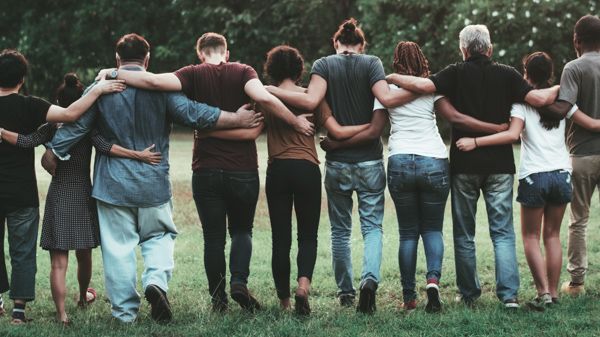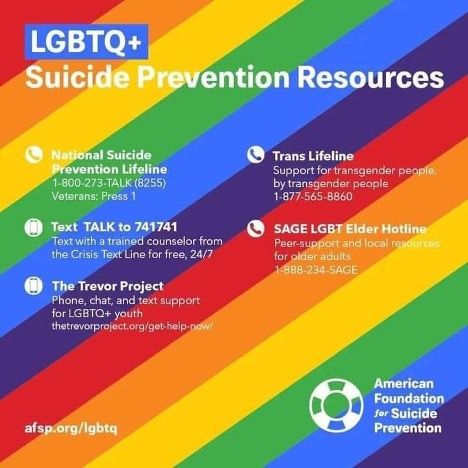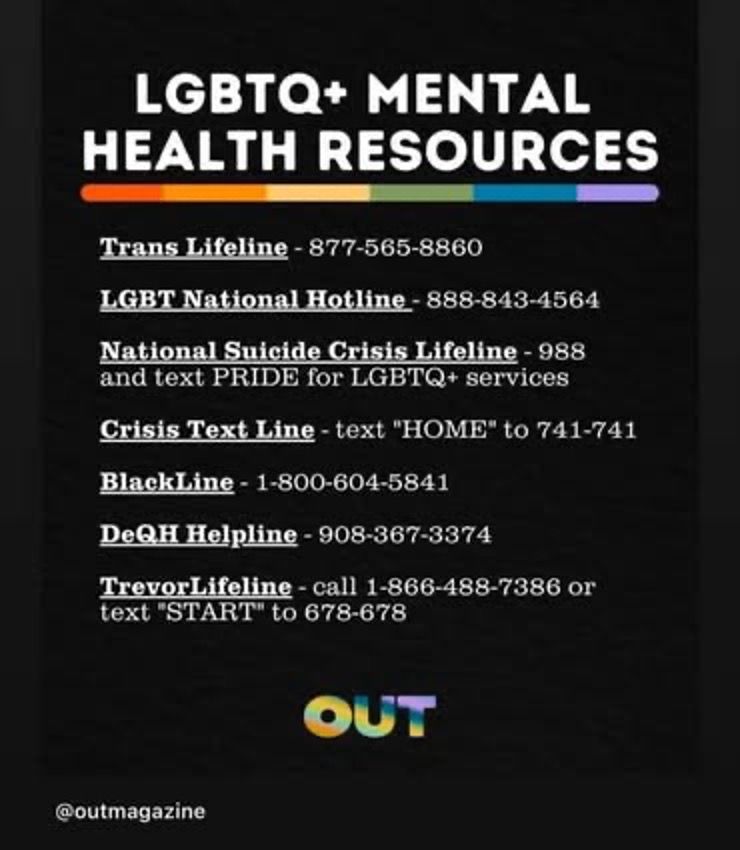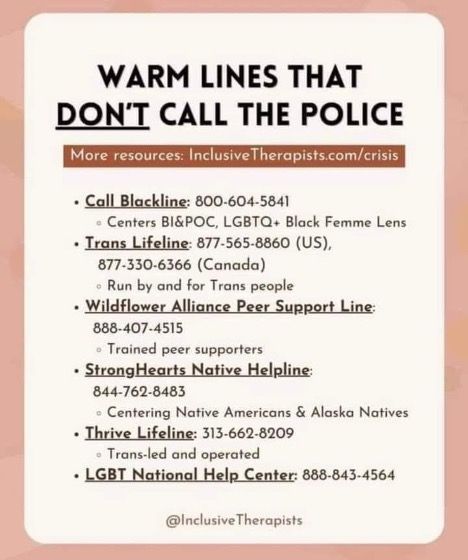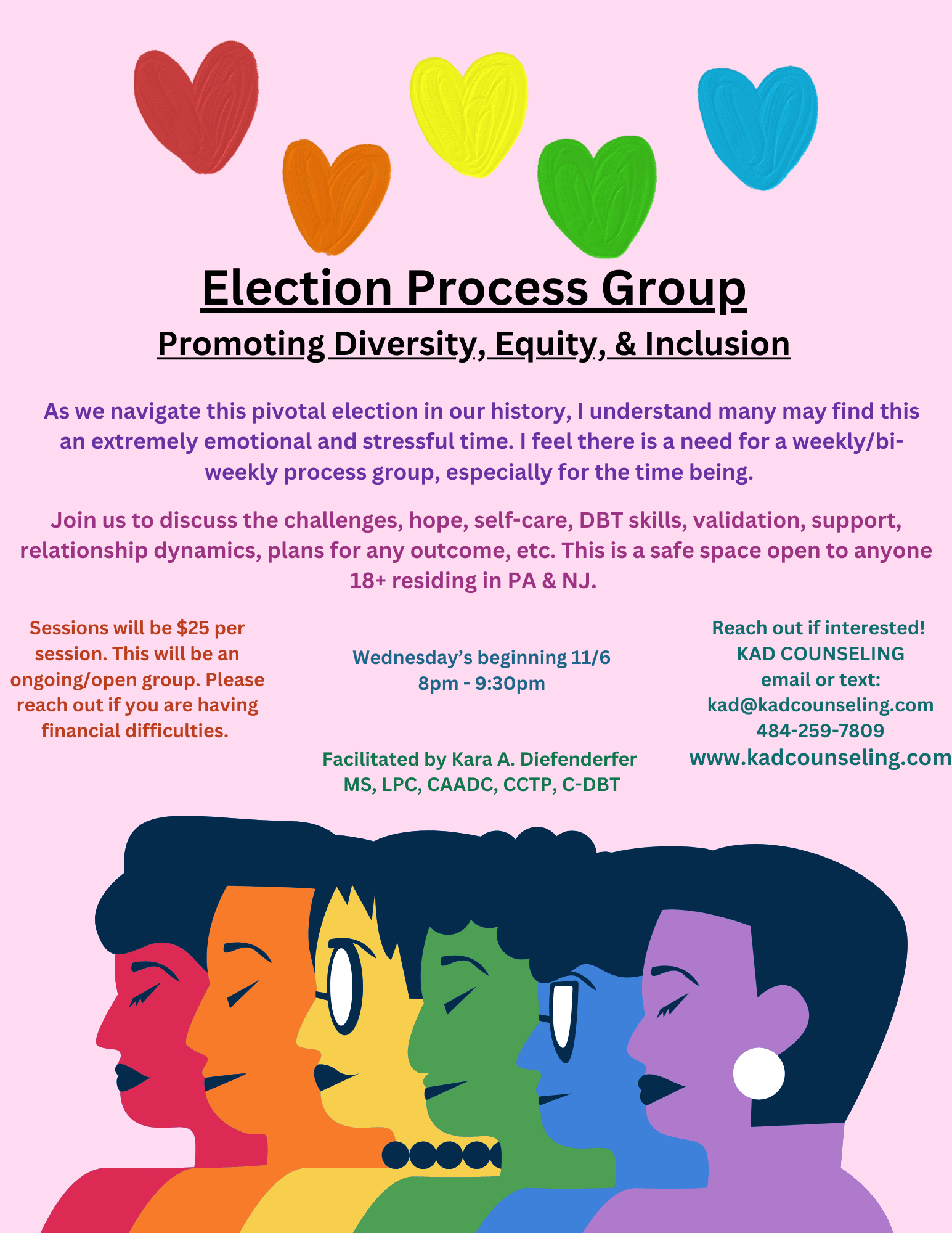Navigating Post-Election Emotions:
Your Guide to Self-Care and ResilienceWelcome to our sanctuary for emotional well-being in the wake of the recent election. We understand that political events can stir intense feelings of anxiety, fear, and uncertainty. Here, you’ll find valuable self-care strategies to support your mental health, foster community connections, and engage in meaningful action. Your well-being matters, and we’re here to help you navigate these challenging times.

Additional mental health resources coming soon.
Tips for Self-Care During Uncertain Times
Self-care around election time can be vital, especially with the emotional impact and stress surrounding political events. Here are some ideas to help maintain mental and emotional well-being:
1. Limit Media Consumption:
Set boundaries for news and social media exposure. Try checking updates only once or twice a day, and avoid endless scrolling—especially before bed.
2. Create a Supportive Space:
Spend time with friends or family who understand your values or participate in online groups that offer positive connection and shared values.
3. Practice Mindfulness:
Deep breathing, meditation, and grounding exercises can help ease anxiety and keep you present. Apps like Headspace or Calm can be useful tools.
4. Take Physical Care:
Regular exercise, healthy meals, and adequate sleep have a direct impact on stress management.
5. Stay Connected to Community Work:
If politics stress you out, turn that energy into action. Engaging with community service, volunteer work, or advocacy for causes that matter to you can be empowering.
6. Seek Nature or Art Therapy:
Time outdoors, especially in green spaces, can be grounding. Art therapy, even informally—like drawing, writing, or creating something—can be calming and provide an outlet for complex emotions.
7. Set Time for Joyful Activities:
Carve out time for things you enjoy, whether that’s watching a movie, reading a book, or doing a hobby. A little escape can be refreshing.
8. Engage in Local Civic Action:
Sometimes it’s easier to see change at the local level. Consider focusing on ways to improve your immediate community, which can feel more direct and fulfilling.
9. Lean on Humor:
Laughter is a great way to relieve stress. Light-hearted shows, comedy specials, or talking with a funny friend can offer relief.
10. Consider Professional Support:
Therapists or counselors who specialize in political anxiety can help you process emotions, especially if the stakes feel personally high.
Taking intentional steps to care for yourself now can set you up to handle post-election outcomes with a more resilient mindset.
To be able to track your ballot, you can ask ChatGPT by saying your county and state, and that you want a direct link to see if your ballot was received and accepted. Mine was but I’m hearing that others were not.
*To check if your vote was counted or received, most U.S. states offer online tools for tracking your ballot’s status. Learn more below about how you can verify it…
Navigating fear and grief after such significant political events is incredibly challenging, especially when it feels like fundamental rights and progress for marginalized groups are at stake. Here are some ways to care for yourself and build resilience during this time:
1. Acknowledge Your Feelings and Seek Support
- Allow yourself to feel the full range of emotions—anger, sadness, anxiety, fear. It’s normal and valid to feel this way.
- Reach out to friends, family, or trusted communities, including those who share similar values and concerns. Talking about fears and hopes in supportive spaces can provide a sense of solidarity and relief.
- Online communities, support groups, and mental health forums can also be valuable, particularly if in-person connections aren’t possible.
2. Create Safe Spaces and Community Bonds
- Build and protect safe spaces where you feel supported and valued for who you are. These spaces can be with friends, activist groups, or even online.
- Consider organizing or joining local groups that advocate for causes important to you. Being part of a community focused on change can lessen feelings of helplessness and provide a sense of purpose.
3. Engage in Action
- Feeling powerless can be overwhelming. Taking small, concrete actions can help. This might mean volunteering, advocating, donating, or simply staying informed to share resources with others.
- Joining or supporting organizations that protect marginalized communities can channel your energy into constructive outlets and remind you that others are also fighting for the causes you care about.
4. Practice Mindfulness and Self-Care
- Being politically active can take a toll on your mental health. Prioritize activities that recharge you—meditation, exercise, journaling, spending time in nature, or just resting when you need it.
- Limit your exposure to the news or social media if it becomes overwhelming. Create boundaries so you’re not constantly bombarded with stress-inducing information.
5. Seek Therapy or Counseling
- If you’re feeling overwhelmed, therapy can provide a safe space to process these emotions. Many therapists are familiar with the unique challenges facing marginalized groups and can help you navigate complex feelings.
- Look for therapists or counselors who specialize in trauma or work with marginalized communities, as they might be more equipped to support you through these specific fears and concerns.
6. Focus on the Long Game
- Progress isn’t always linear, and setbacks are part of the journey. Remind yourself that there’s a long history of people standing up for justice and equality, even during dark times.
- This moment is part of a larger story. Recognize your role in helping shape a better future and remember that change is often gradual.
7. Hold on to Hope
- Look to stories of resilience and positive change within marginalized communities. Lean into examples of those who have overcome adversity, especially in hostile political climates. Holding onto hope can be a quiet act of resistance.
During uncertain times, it’s essential to remind yourself that self-care is not selfish; it’s a critical part of sustaining the energy needed to continue advocating for the things that matter. Your well-being is a priority.
Additional Resource Links:
I’m not an expert in politics, and the content below is not based on extensive research. It’s simply information you may find helpful, but I encourage you to continue doing your own research. Much is TikTok snippets for the neurodivergent brain. *TikTok is primarily an entertainment platform, not a reliable source for verified information*
Planning / Preparation
Messages of Hope / Historical Insight
Know Your Rights
Safety / Mental Health / Physical Health
- https://www.shesbirdie.com/
- https://www.tiktok.com/@expatsi/video/7433406583859662126?
- https://www.rainbowrailroad.org/
- https://www.plannedparenthood.org/?fbclid=IwY2xjawGo019leHRuA2FlbQIxMAABHYNCzZZ23MnvYy7Bo2ypqqf4ZkOp8LSU8pjacDBiqqHPSSrvglCSqOEfvQ_aem_bfJXvrnXHY2rUk8yt0B_0A
- https://aidaccess.org/en/
- https://www.tiktok.com/@msnbc/video/7435731669979647275?
- https://www.tiktok.com/@msnbc/video/7435731669979647275?
Free Services
- Officiant: Dana Lynn- If you’re a queer couple who is wanting to get married before he takes office, I’m willing to do it for free. Love has to win. ❤️🧡💛💚💙💜
Sageandstonedoulacare@gmail.com
+1 (484) 426-4966
Action
Community & Awareness
THE RESISTANCE FB GROUP (formerly Defeat Trump 2024)
CONSUMER GOODS/SERVICES/COMPANIES & THE PARTY(S) THEY FUND
HANDS OFF!
Levity (Contains Explicit Language & Content)
- https://www.tiktok.com/@fallontonight/video/7437623733637975342?
- https://www.tiktok.com/@adamfrith_/video/7386738560247876896?
- https://www.tiktok.com/@vigiegyteik/video/7437114612048219438?
- https://www.tiktok.com/@neurodivers_show/video/7405701076915096864?
- https://www.tiktok.com/@lifereallysocks/video/7379646803777555755?



